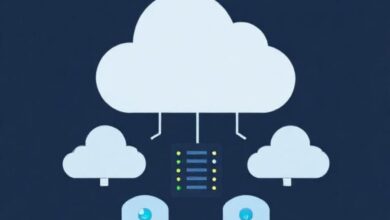How to Improve Customer Retention for Small Businesses

Running a small business means wearing many hats: marketing, operations, and customer service, just to name a few. But if there’s one thing you can’t afford to overlook, it’s customer retention. You may have heard that it’s cheaper to retain existing customers than to acquire new ones—and that’s not just a cliché. Studies show that increasing customer retention by just 5% can boost profits by 25% to 95%.
The Cost of Losing Customers
When customers leave, it’s not just a missed sale; it’s the loss of future revenue. A loyal customer is worth far more than a one-time buyer. Moreover, a negative experience can quickly tarnish your reputation. That’s why investing in customer retention should be a top priority for your small business.
Understanding Customer Retention
Defining Customer Retention
Customer retention is all about keeping customers coming back for more. It involves creating a positive and seamless experience so they choose your product or service again and again, rather than looking elsewhere. Think of it like nurturing a relationship: the more care you put in, the more it grows.
The Difference Between Retention and Acquisition
While customer acquisition is crucial for growth, retention is the secret to long-term success. Acquiring new customers can be costly, requiring time, money, and resources. Retention, on the other hand, focuses on keeping the ones you already have, which is often more cost-effective.
Build Strong Customer Relationships
Personalize the Customer Experience
Today’s consumers crave personalization. They want to feel like a business understands their needs and treats them as more than just a number. Simple steps like addressing customers by their names or offering tailored recommendations based on past purchases can go a long way. This kind of personalization builds trust and keeps customers engaged.
Engage With Customers Regularly
Stay top-of-mind by engaging with your customers outside of just selling to them. Use email newsletters, social media, or even loyalty programs to keep them in the loop about new products, offers, or company updates. Regular communication helps foster a sense of belonging and strengthens the emotional connection between your brand and customers.
Offer Exceptional Customer Service
Fast and Efficient Problem Resolution
If you want to keep customers loyal, exceptional customer service is a must. When customers face issues, they expect prompt and efficient resolutions. In fact, nearly 70% of customers will stay loyal to a company if their complaints are handled quickly and effectively. Whether it’s a refund, exchange, or simple question, be sure to address concerns swiftly.
Being Accessible and Approachable
Make sure your customers can easily get in touch with you. Whether through live chat, social media, or email, accessibility is key. Being approachable shows customers that you care about their needs and are always ready to help.
Loyalty Programs That Work
The Power of Rewards
Loyalty programs are one of the most effective ways to keep customers coming back. By offering rewards, discounts, or points for every purchase, you can incentivize repeat business. Customers appreciate when they feel valued, and loyalty programs are a great way to show that appreciation.
How to Build a Loyalty Program
Start small. Offer a simple program with easy-to-understand benefits. You can offer a points system, discounts after a certain number of purchases, or exclusive access to new products or events. Make sure the rewards are valuable enough to encourage repeat business without cutting into your profit margins.
Customer Feedback and Improvement
The Importance of Gathering Feedback
Feedback is gold. Customers who take the time to tell you what they like or don’t like are giving you valuable insights into how you can improve. Regularly ask for feedback through surveys, emails, or social media polls, and use this information to adjust your products, services, and customer service strategies.
Turning Feedback Into Action
The key is not just collecting feedback but actually acting on it. Show your customers that their opinions matter by making visible improvements. When customers see that you’ve listened to their feedback and made changes, their loyalty will grow.
Utilizing Technology to Enhance Retention
CRM Systems for Tracking Engagement
Customer Relationship Management (CRM) tools can help you keep track of customer interactions, purchase histories, and preferences. This information allows you to offer personalized service and anticipate customer needs, making retention efforts much more effective.
Email Campaigns and Automation
Email campaigns are an effective way to keep customers engaged, but they’re most powerful when automated. Set up triggered emails based on customer actions, like a thank-you email after a purchase or a reminder for an abandoned cart. Automation saves time and ensures no customer is forgotten.
The Role of Social Media in Customer Retention
Creating Community and Connection
Social media isn’t just for marketing; it’s a powerful tool for building community. By creating engaging posts and responding to comments, you can turn your followers into a loyal community. When customers feel connected to your brand, they’re more likely to stick around.
Using Social Media for Customer Service
In today’s digital age, many customers prefer reaching out on social media for customer support. Make sure your business is responsive across all platforms and resolves issues in a timely manner.
Consistency Is Key
Maintaining Quality Across All Touchpoints
Consistency builds trust. Whether a customer is interacting with your website, social media, or in-store, make sure the experience is consistent. From the messaging to the quality of service, consistency in every aspect of your business shows customers that they can rely on you.
Building Trust Through Consistency
When customers know what to expect from your brand every time, they’ll feel more confident in their decisions to purchase from you again. Trust is the foundation of retention, and consistency is how you build it.
Creating Emotional Connections
Emotional Branding and Customer Loyalty
Emotional connections are often what turn customers into loyal advocates. People don’t just buy products—they buy feelings, memories, and experiences. Use storytelling in your branding to connect on a deeper level. Whether it’s a compelling brand story or a message of purpose, emotion plays a big part in loyalty.
Storytelling to Strengthen Bonds
Share stories about your brand, your team, and your customers. Storytelling humanizes your business and gives customers something to relate to. It’s an emotional hook that keeps them coming back.
Value-Added Services
Going Above and Beyond for Customers
Sometimes, customer retention is all about exceeding expectations. Consider adding value through special services or extras that your competitors may not offer. Whether it’s free shipping, personalized thank-you notes, or complimentary services, going the extra mile can leave a lasting impression.
Offering Personalized Solutions
Offer customers tailored solutions based on their past behavior. This shows them you understand their needs and value their business. It also gives them a reason to keep coming back for more.
Monitor and Measure Retention Metrics
Key Metrics to Track
Track key metrics like customer retention rate, repeat purchase rate, and customer lifetime value (CLV). These indicators can help you understand how effective your retention efforts are and where you need to improve.
How to Measure Success
Measure success by evaluating changes in your metrics over time. If you see improvements in customer retention, it means your strategies are working. If not, revisit your approach and make adjustments.
Handling Customer Complaints Effectively
Turning Complaints Into Opportunities
Complaints aren’t the end of the world—they’re an opportunity to improve. When handled correctly, a complaint can turn a dissatisfied customer into a loyal one. Always address complaints with empathy, and make sure to fix the issue.
Handling Negative Feedback Professionally
Negative feedback is inevitable, but how you respond can make all the difference. Stay professional, acknowledge the issue, and show that you’re committed to resolving it. A well-handled complaint can actually enhance your reputation.
Adapting to Changes in the Market
Staying Ahead of Trends
Consumer preferences can change quickly, and staying ahead of trends is vital for long-term retention. Keep an eye on market shifts and adjust your offerings accordingly.
Innovating to Meet Customer Needs
Innovation doesn’t always mean new products—it can also mean improving existing services to better meet customer needs. Stay flexible and open to change.
Conclusion
The Importance of Long-Term Relationships
Customer retention is about building lasting relationships. By focusing on personalization, exceptional service, and value-added offerings, small businesses can keep customers coming back for years.
Final Thoughts on Improving Customer Retention
In today’s competitive market, customer retention is a key differentiator. It’s not just about making a sale—it’s about creating an experience that keeps customers loyal. With the right strategies, even small businesses can foster strong, long-lasting relationships that drive continued growth.
FAQs
1. How can I measure customer retention for my small business?
You can measure retention by tracking your repeat purchase rate, customer lifetime value (CLV), and retention rate over a set period.
2. How do loyalty programs help with customer retention?
Loyalty programs reward customers for repeat business, encouraging them to return and make additional purchases. They also create a sense of belonging.
3. How can social media improve customer retention?
Social media allows businesses to engage with customers on a personal level, build community, and offer customer service in real-time.
4. What’s the most important aspect of customer service for retention?
Fast, effective resolution of issues is critical. Customers are more likely to stay loyal if they feel their concerns are handled quickly and professionally.
5. How do I handle customer complaints without losing them?
Listen to their concerns, empathize, and offer a quick solution. A well-handled complaint can actually strengthen your relationship with the customer.




